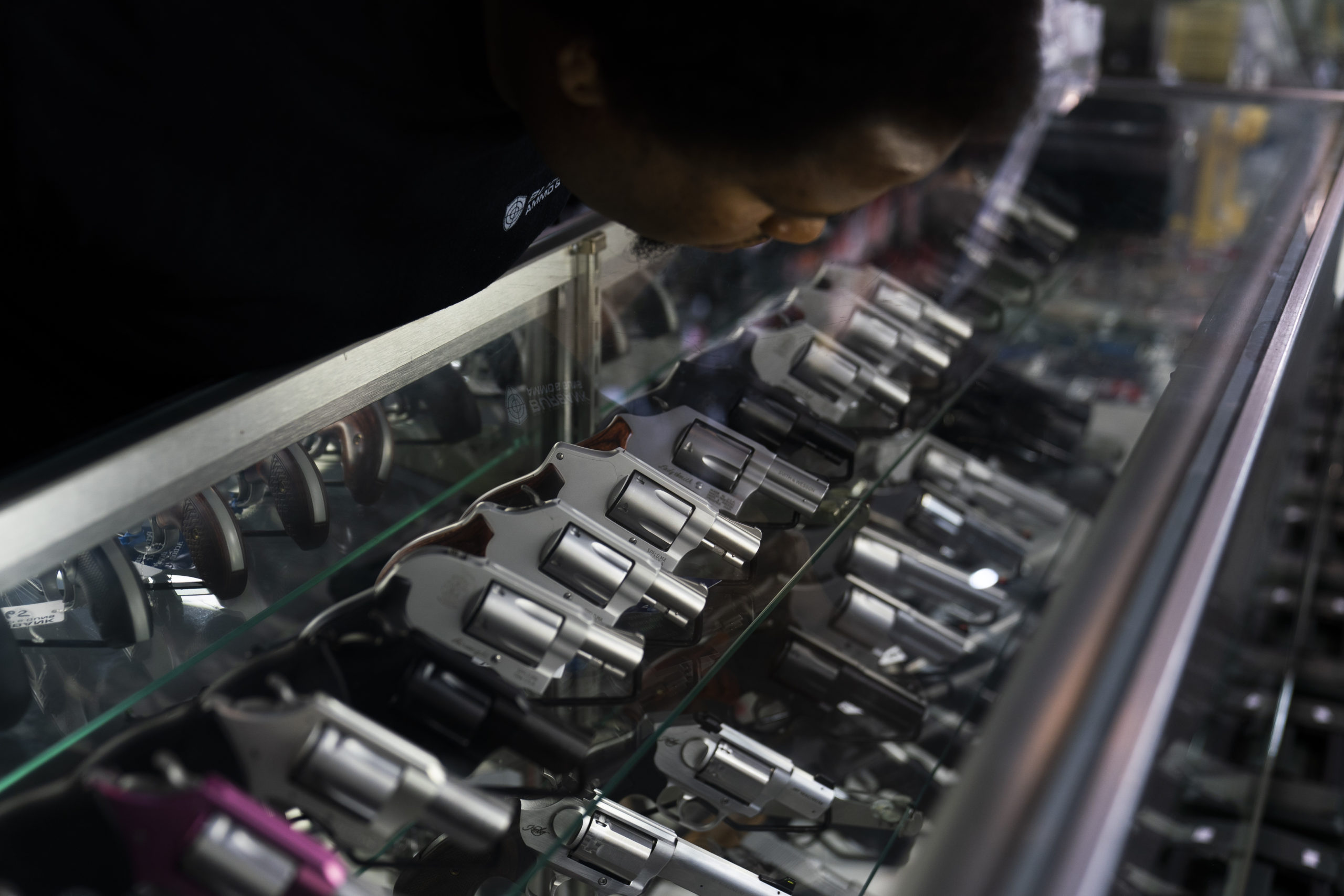What To Know Today
4 in 10 Americans think it’s at least somewhat likely they will be a victim of gun violence in the next five years. That’s one of several takeaways in a new survey from the University of Chicago Harris School of Public Policy, The Associated Press, and NORC Center for Public Affairs Research, which surveyed a nationally representative sample of 1,373 Americans. Other findings:
- Younger Americans are more concerned they’ll be shot than older people. Fourteen percent of respondents under 34 said being a shooting victim was likely, compared with 6 percent of those 50-64 and 6 percent of those 65 and older.
- 71 percent of respondents want stricter gun laws, with the most popular regulations being limits on who can buy firearms, like people with a history of mental health issues.
- 52 percent said it’s very important to prevent mass shootings AND ensure people can own guns for self-defense.
- Black and Hispanic people are more than twice as likely as white people to say they or someone they know have experienced gun violence.
- Three-fourths say gun violence is a major problem, and 8 in 10 say it’s getting worse. But 66 percent thought it was increasing in their state, and just 39 percent in their local area.
Street outreach workers report high levels of trauma and stress. A May working paper based on a survey of nearly all community-based violence interventionists in Chicago found that people deployed as outreach workers had deep exposure to violence and suffered high personal costs. In a follow-up study of that data, researchers at Northwestern University and the University at Albany, SUNY, also revealed those workers experienced high levels of secondary traumatic stress — a term for the strain people face when they hear about or are exposed to the traumatic experiences of others. Ninety-four percent of interventionists reported at least one STS indicator in the previous 7 days, and 50 percent reported experiencing more than half of the 17 STS indicators. “Our analysis further showed that the STS responses of interventionists were impacted by on-the-job traumatic experiences, particularly the death of a client,” the researchers wrote. “These results offer an important first systematic analysis of the trauma and mental health risks associated with community violence intervention practice and suggest that policymakers and practitioners should monitor and address worker risk of traumatic stress within this important public health profession.” Related from The Trace: In March, we wrote about the workplace hazard for outreach workers in Baltimore after three workers were killed in 12 months.
The Omaha Police Department’s connection to a far-right linked gun shop. Emails obtained by the Southern Poverty Law Center show a proposed plan by law enforcement in Nebraska’s largest city to trade tens of thousands of dollars worth of tactical gear for about $3,000 worth of gun equipment from a local dealer. That dealer has hosted far-right and anti-Islamic speakers and been accused of trafficking in extremist and white supremacist branding. An OPD spokesperson defended the potential deal as a “strictly professional” relationship with a business and that the OPB would not do business with groups with anti-Islamic or far-right links. But critics of the shop contend its extremist links are plain to see.
Cleveland violence prevention activist sues city, police over arrest for open carry. Antoine Tolbert was carrying a shotgun and a handgun when an officer arrested him, despite knowing Tolbert wasn’t breaking the law, a new lawsuit contends. A grand jury rejected charges in the case after the arrest. Tolbert leads New Era Cleveland, a community group seeking to help impoverished areas that conducts armed safety patrols in areas with elevated violence. When Tolbert asked why he was being arrested, the officer — according to the lawsuit and body camera footage — said: “You can’t walk down the street with a gun in your hand…I’m not going to allow you to do it.”
A status check on how the 988 mental health hotline is working in Philadelphia. The Philadelphia Inquirer took a look at the national number for people who require urgent mental health assistance that launched last month. In Philly, the paper found, the launch of the new number saw a big spike in calls at first — a 37-percent increase in the first two days — but the rates have returned to normal since then. Nationally, the number of calls increased by 45 percent during the first week of 988. Advocates caution that it will take time for public awareness campaigns to boost knowledge and utilization of the hotline.
Data Point
27 percent — the share of people in rural communities who think gun violence is on the rise, compared to 51 percent in urban areas and 39 percent in suburbs. [University of Chicago/ Associated Press/NORC Center survey]

